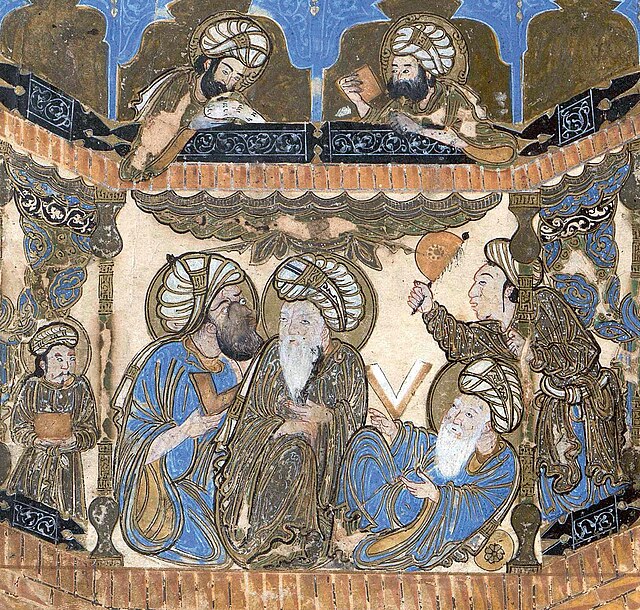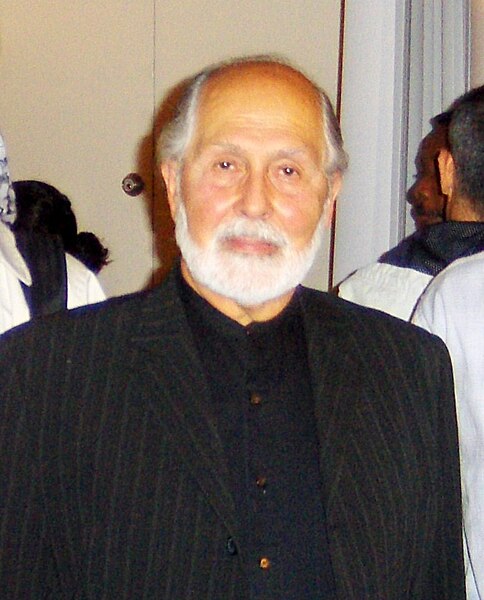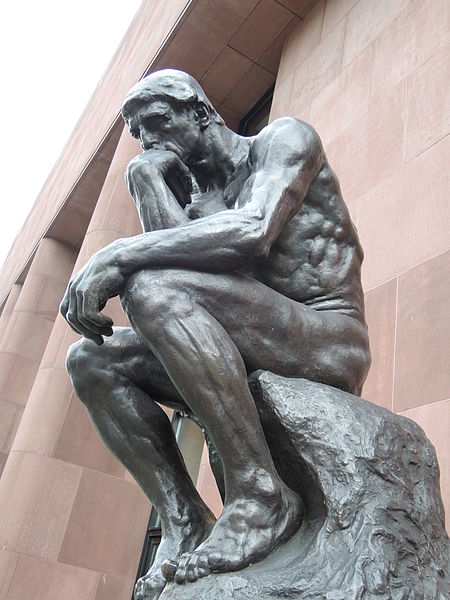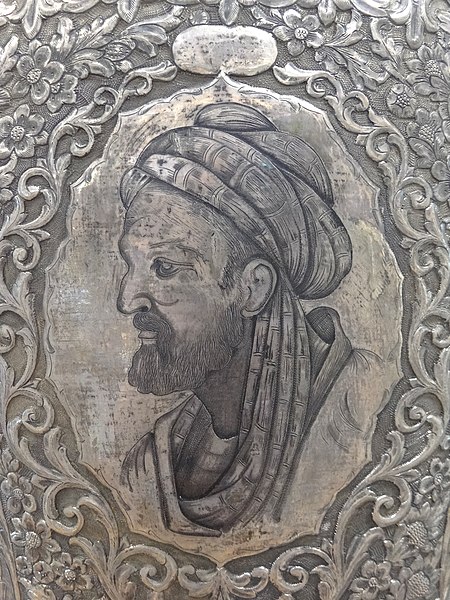Islamic philosophy is philosophy that emerges from the Islamic tradition. Two terms traditionally used in the Islamic world are sometimes translated as philosophy—falsafa, which refers to philosophy as well as logic, mathematics, and physics; and Kalam, which refers to a rationalist form of Scholastic Islamic theology which includes the schools of Maturidiyah, Ashaira and Mu'tazila.
The Brethren of Purity were a medieval secret society, consisting of Islamic philosophers, here seen in an illustration from the Encyclopedia of the Brethren of Purity, c. 1287.
An Arabic manuscript from the 13th century depicting Socrates (Soqrāt) in discussion with his pupils
Allama Muhammad Iqbal (1877–1938) Muslim philosopher, poet and scholar from Pakistan (then British India).
Seyyed Hossein Nasr (born 1933) is one of the leading Muslim philosophers of the contemporary world.
Philosophy is a systematic study of general and fundamental questions concerning topics like existence, reason, knowledge, value, mind, and language. It is a rational and critical inquiry that reflects on its own methods and assumptions.
The statue The Thinker by Auguste Rodin is a symbol of philosophical thought.
Physics was originally part of philosophy, like Isaac Newton's observation of how gravity affects falling apples.
Aristotle was a major figure in ancient philosophy and developed a comprehensive system of thought including metaphysics, logic, ethics, politics, and natural science.
Portrait of Avicenna on a silver vase. He was one of the most influential philosophers of the Islamic Golden Age.








